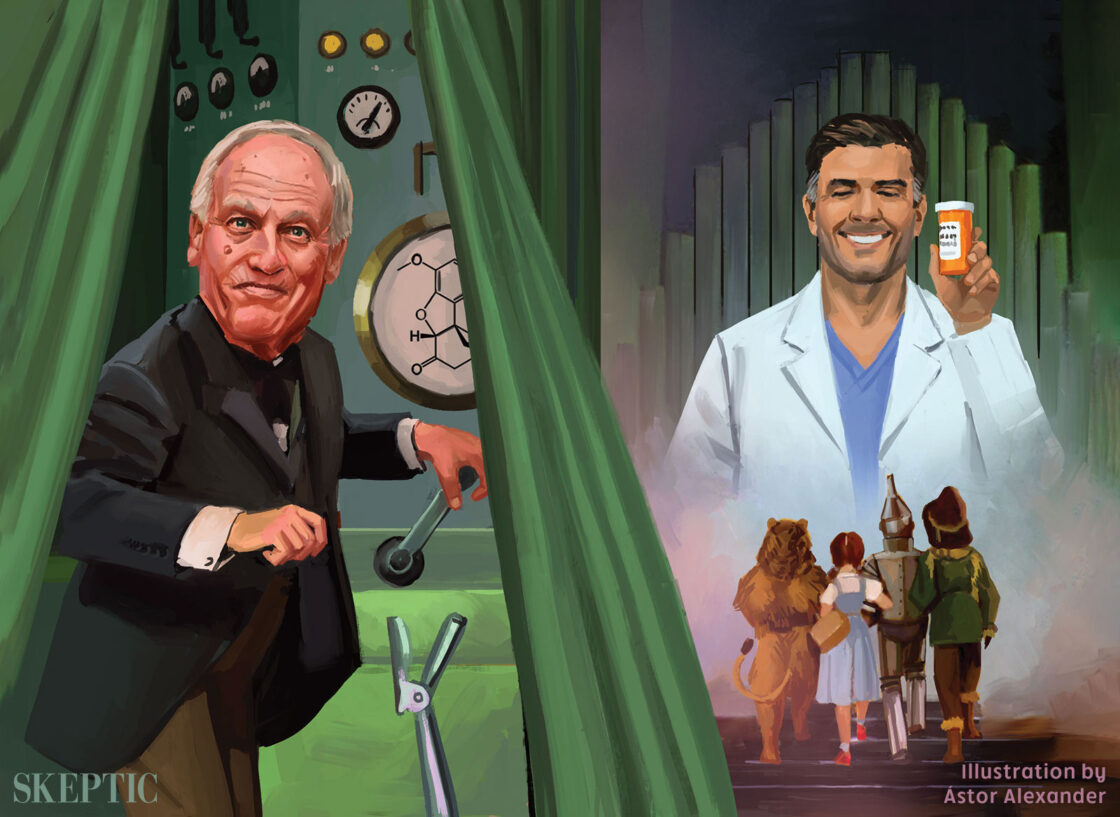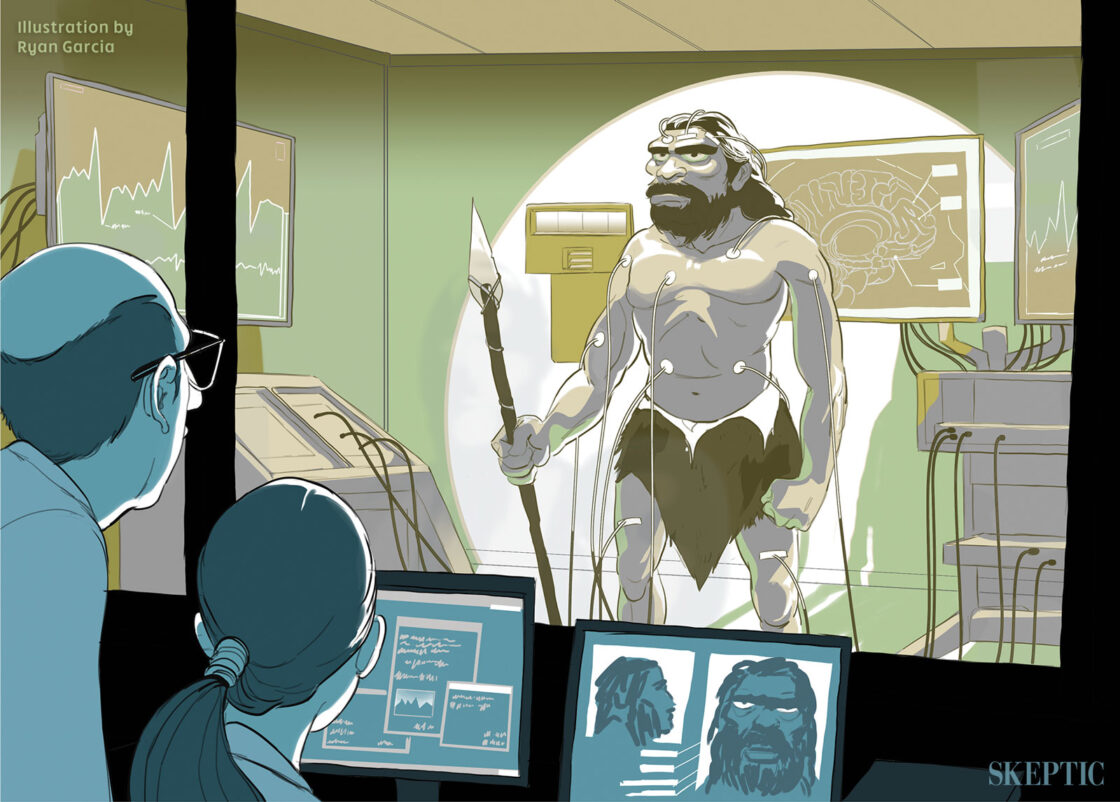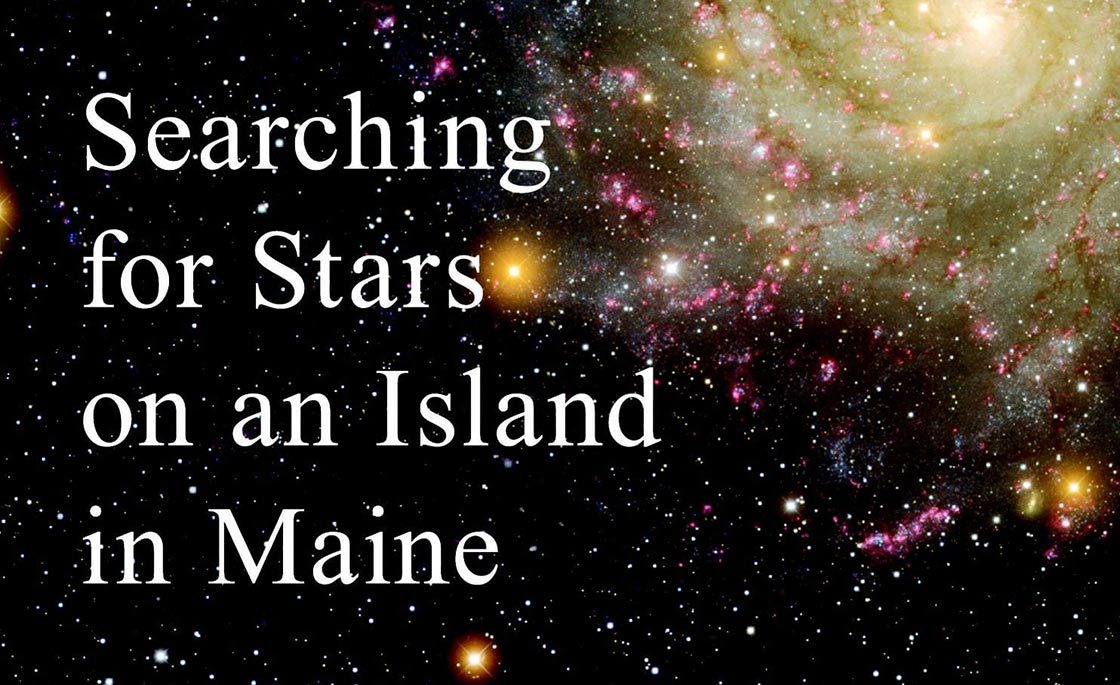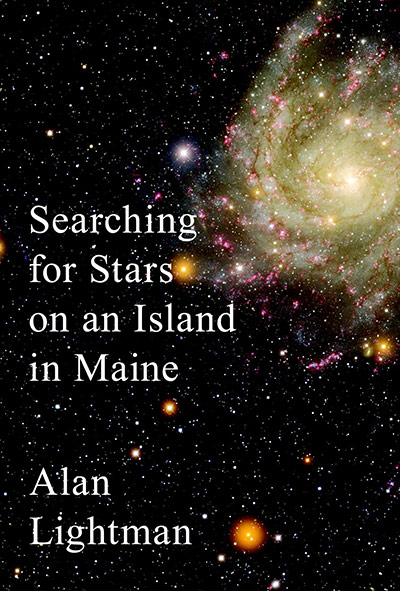In 1801 the English poet Samuel Taylor Coleridge calculated the impact ratio of scientists to poets thusly: “the souls of 500 Sir Isaac Newtons would go to the making up of a Shakespeare or a Milton.” Defending his 1820 poem “Lamia,” Coleridge’s contemporary poet John Keats growled that Isaac Newton had “destroyed the poetry of the rainbow by reducing it to a prism,” lamenting that natural philosophy (science) will “unweave a rainbow.”
Does a scientific understanding of the world erase its emotional impact or spiritual power? Of course not. Science and spirituality are complementary, not conflicting. As the physicist Richard Feynman reflected in a 1981 BBC interview The Pleasure of Finding Things Out in recalling a conversation with an artist friend about appreciating a flower: ”the beauty that he sees is available to other people and to me too, I believe. At the same time, I see much more about the flower than he sees. I could imagine the cells in there, the complicated actions inside, which also have a beauty. The fact that the colors in the flower evolved in order to attract insects to pollinate it is interesting; it means that insects can see the color. It adds a question: does this aesthetic sense also exist in the lower forms? Why is it aesthetic? All kinds of interesting questions which the science knowledge only adds to the excitement, the mystery and the awe of a flower. It only adds.”
Spirituality is a way of being in the world, a sense of one’s place in the cosmos, a relationship to that which extends beyond ourselves. I call this sciencuality, a neologism that echoes the sensuality of discovery. “Our contemplations of the cosmos stir us,” the astronomer Carl Sagan waxed poetic in the opening scene of his documentary series Cosmos, one of the most spiritual expressions of science ever produced. “There’s a tingling in the spine, a catch in the voice, a faint sensation as if a distant memory of falling from a great height. We know we are approaching the grandest of mysteries.”
Science needs its poets and Alan Lightman is the perfect amalgam of scientist (he works on the astrophysics of black holes) and humanist (he’s a novelist who held a joint appointment at MIT in the sciences and humanities), and Searching for Stars on an Island in Maine is an elegant and moving paean to our spiritual quest for meaning in an age of science. The book consists of twenty tightly-composed essays on a variety of topics (Stars, Atoms, Truth, Transcendence, Death, Certainty, Origins…) with a narrative thread running through them all of the search for something deeper in the materialist worldview of the scientist. Take death. “For a materialist,” Lightman writes, “death is the name that we give to a collection of atoms that once had the special arrangement of a functioning neuronal network and now no longer does so.” But this is unsatisfying. Of his parents, Lightman wonders, “Where are they now, my deceased mother and father? I know the materialist explanation, but that does nothing to relieve my longing for them, or the impossible truth that they do not exist.” (137) Lightman doesn’t fear death. “Despite my belief that I am only a collection of atoms, that my awareness is passing away neuron by neuron, I am content with the illusion of life. I’ll take it. And I find a pleasure in knowing that a hundred years from now, even a thousand years from now, some of my atoms will remain on Lute Island.” (139)
Lute Island, Maine is where Lightman’s journey begins. On a clear moonless night in a tiny motorboat on his way to this summer retreat, sensing something special about the moment, he turned off the running lights and engine, lay supine on the deck to take in the ocean of stars, and let himself go. “The boat disappeared. My body disappeared. And I found myself falling into infinity. A feeling came over me I’d not experienced before.” Mystics and meditators aim for this feeling of oneness with the cosmos, but Lightman’s just happened. “I felt an overwhelming connection to the stars, as if I were part of them. And the vast expanse of time—extending from the far distant past long before I was born and then into the far distant future long after I will die—seemed compressed to a dot. I felt connected not only to the stars but to all of nature, and to the entire cosmos. I felt a merging with something far larger than myself, a grand and eternal unity, a hint of something absolute.” (5-6) When he returned to awareness of his body and boat he had lost all sense of time passing.
What is a scientist to make of such mystical experiences? Lightman begins with Absolutes, “ethereal things that are all-encompassing, unchangeable, eternal, sacred.” (7) Absolutes “refer to an enduring and fixed reference point that can anchor and guide us through our temporary lives.” (8) Absolutes go beyond science and are “rooted in personal experiences, but they involve beliefs beyond that experience.” (8) The problem, he admits, is that such experiences cannot be proven, “certainly not in the way that science has proven the existence of atoms,” (9) so we are left with internal truths, those that are by definition out of the realm of science, to be understood solely through experience.
And faith. What he calls the Central Doctrine of Science—the assumption that “all properties and events in the physical universe are governed by laws, and those laws hold true at every time and place in the universe” (97)—is an article of faith because “It cannot be proved.” (99) It “must simply be accepted.” (101) In support of this assertion Lightman cites no less a luminary than Albert Einstein, who despite being the discoverer of relativity nevertheless believed in one Absolute: “He believed in a beautiful and mysterious order underlying the world.”
Ultimately scientists must convince other scientists that their particular theory of the Absolute is true (or at least not false), and to do so they must leave the mystical realm of personal experiences and return to the lab. But Lightman’s aim in this insightful and provocative musing is to remind us of the centrality of subjectivity in all human endeavors, including those of science. ![]()
About the Author
Michael Shermer is the publisher of Skeptic magazine, a monthly columnist for Scientific American and a presidential fellow at Chapman University. His latest book is Heavens on Earth: The Scientific Search for the Afterlife, Immortality, and Utopia.
This article was published on July 18, 2018.



















It’s called “A leap of faith” because it requires a decision to explore that which is unsupported by logic or reason
Meaning isn’t found; it’s created.
Infinity is just a bigger prison. Cosmoland Department of Corrections is our ultimate destiny. Does it matter he name of the W(w) arden?
It seems redundant to suppose that the scientific enterprise demands ‘faith’ in universal laws, since the enterprise will get the same results if we simply gamble that the search for such laws will continue to pay off. Should those results happen point to something outside universal laws, then the supposition that this is heresy would endanger the funding needed to explore mind-blowing hypotheses.
I’ve long admired Lightman’s work (his novel ‘Reunion’ particularly moved me, but it’s all good). I’d already read ‘Searching for Stars’ by the time the reviewers got to it, so I had the pleasure of experiencing it without the secondary influence of other opinions (even those of a reviewer as insightful as Shermer).
Our quest to understand our feelings when contemplating the universe does not diminish our enjoyment of our contemplation. It’s been a “wondrous joy” of humanity for a very long time. Just like learning a lot about our sexuality has not stopped us from performing and enjoying sex. So these feelings may have been provided by our evolution to keep us engaged, to keep on searching for meaning. An interested (awed) human is less likely to give up.
Regarding Matthew Goldstein’s ” …Our universe has proven to be consistently lawful, and as a result science has been productive … .” How can any person of “faith” deny that statement is not true, and, can they say the same for the “faith” they adhere to, blindly, without question? It is science and not faith that saved me from a horrible death from intussusception, my grandson from suffocating from asthma, my father from a rupture gall bladder. Yet intelligent people have told me “that was god”. We who read Skeptic and participate in the comments are doing so, by some measure, because we’ve had the fortune to be born in a part of the world where we don’t have to worry about where we’ll next find clean water; that we have food available in abundance; that we don’t fear warlords and their insane philosophies of sharia etc. I wonder: do the peoples who live in horrible conditions have or make the time to ponder upon the things we read and write of in this forum? As immutable as these thoughts and topics or ideas are, isn’t all just another sign of great privilege, and at what cost, if any, to other humans who’s concerns are, to be hones with ourselves, of no concern to us?
Thank you for this review. It is nice to encounter opinions supporting the compatibility of science and the humanities. I don’t see much of that coming form either side.
I like Dr Schermer’s new vocab word. It’s a word we definitely need – I have had that experience. I also agree that something has to be done about that spelling – it utterly lacks elegance.
We could quibble about Dr Lightman’s choice of the word ‘faith’ when describing the philosophical foundations of science. We could call it an assertion or a host of other words but the position that the Universe ‘plays by rules’ is not as provable as we might think.
The fact that we come up with rules that faithfully predict outcomes of certain events does not mean that the Universe plays by those rules – or any rules at all. Einstein’s theory of General Relativity demonstrated that Newton’s law of gravitation does not portray the actual gravitational rules of the Universe (and Newton ‘s Law of Universal Gravitation showed that Galileo’s rule of gravity did not really portray the gravitational rules of the Universe).
The assertion that ultimately, the Universe plays by rules may not be as solid as we think. Sure, we can engage in logomachy and dub as ‘rules’ the way the Universe does work… but that would be simply plastering over our ignorance, rather than examining it in hopes of penetrating it an understanding our Universe in a more fundamental way.
Which philosopher of science noted that all evidence is interpreted in the context of the dominant scientific paradigms at that time? In other eras the data could be interpreted quite differently.
We must always be sure we are hearing what the data say – and not putting words into its mouth (their mouths? Sometimes ‘data’ should NOT be a plural!)
The statement that anything …is an article of faith because “It cannot be proved.” (99) It “must simply be accepted” is in error on several levels, but one is the easiest to illustrate.
Ayn Rand is known more for her politics than her philosophical breakthroughs in epistemology, such as the cleanest definition of an axiom I have encountered. She, like all others, made mistakes, but this was a giant step forward in metacognition. She said:
An axiom is a proposition that defeats its opponents by the fact that they have to accept it and use it in the process of any attempt to deny it.
It is this that requires acceptance of the “Central Doctrine of Science,” not faith.
What he calls the Central Doctrine of Science—the assumption that “all properties and events in the physical universe are governed by laws, and those laws hold true at every time and place in the universe” (97)—is an article of faith because “It cannot be proved.” (99) It “must simply be accepted.” (101) In support of this assertion Lightman cites no less a luminary than Albert Einstein, who despite being the discoverer of relatively nevertheless believed in one Absolute: “He believed in a beautiful and mysterious order underlying the world.”
The laws are not an article of faith, they can be proved unrestricted many times (replication principle in science). What can not be proved is that the laws do not exist: until today nobody has discovered some physical medium with different laws. The fact that “all properties and events in the physical universe are governed by laws, and those laws hold true at every time and place in the universe” must not simply be accepted. Scientists use the Occam’s razor: they propose that the laws are the same everywhere until the opposite is proven.
Einstein’s pronouncement about beautiful and mysterious order underlying the world is a duty to his time and education: beauty, mystery and emotions are features added by humans, the physical processes of nature simply are as they are.
I like the neologism, but the spelling? Sciencuality? GACK. Uglier to look at than to pronounce, which is saying something. How about sciensuality, which I’m fairly sure is how you’re pronouncing it.
Life is bleak.
We individually have no more meaning than the ant that just wandered by me. No more ultimate meaning, that is. Our contribution to life and the universe is about the same as that of a falling leaf. Zero.
We control or decide nothing, because there is no such thing as free will. Of course not. How could there be? A ridiculous notion, if you think about it.
Life is short. We are young for a while, but pretty soon we are middle aged. Soon after comes old age, followed by the total final end. Meanwhile, we are just aiting for the final eclipse.
Whether you believe in a creator or not, there can be no point to our lives. What meaning could they possibly have? None. But, of course, there is no God. (A creator is different and not to be dismissed quite so lightly.)
Altogether, very bleak. I´m going to have a brandy. Give this short time some brief meaning. Is there brandy in Heaven?
Corecctions: If … then …, If … then ….
‘And faith. What he calls the Central Doctrine of Science—the assumption that “all properties and events in the physical universe are governed by laws, and those laws hold true at every time and place in the universe” (97)—is an article of faith because “It cannot be proved.” (99) It “must simply be accepted.” (101)’
We disagree. What he is calling a “doctrine״, “assumption”, and “article of faith” of science is actually a result, outcome, and conclusion derived from science. If properties and events were “unlawful” than science would have discovered that they are unlawful.
Our universe has proven to be consistently lawful, and as a result science has been productive, which is also consistent with our universe being strictly natural (mechanical, material, physical). If our universe was unlawful than science would probably have reached the conclusion that our universe is unlawful by now.